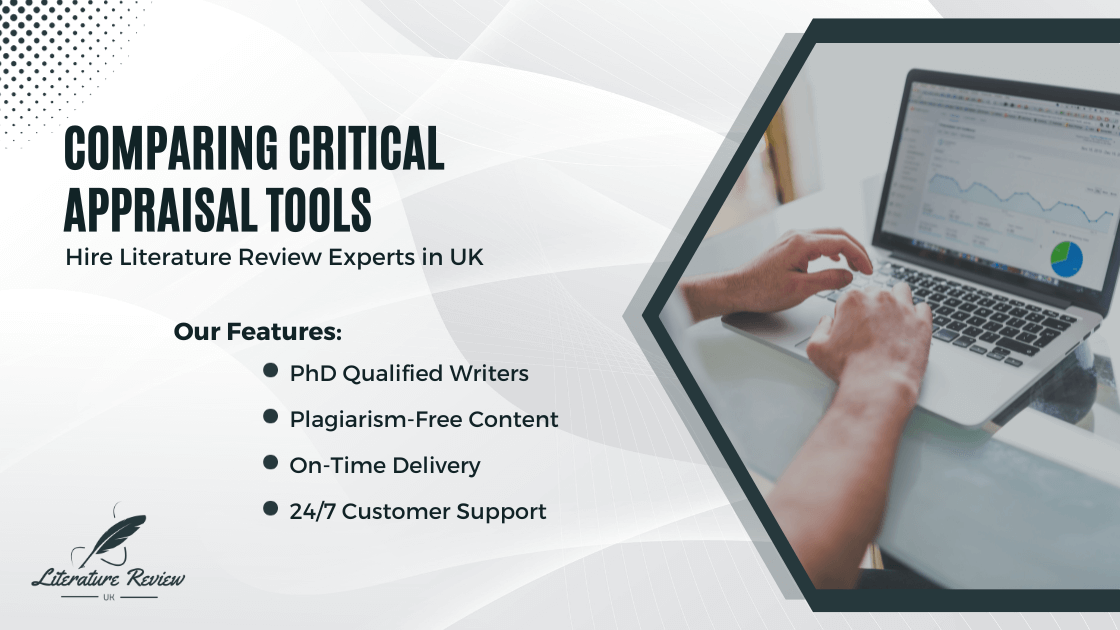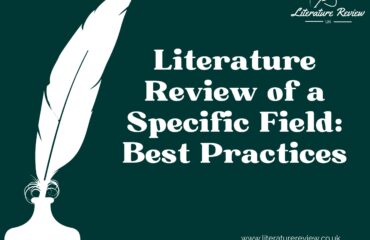
Are you embarking on a literature review and finding yourself lost in a sea of research papers, not sure how to evaluate their quality and relevance? Fear not! In this comprehensive guide, we will dive deep into the world of critical appraisal tools for literature reviews and systematic reviews. By the end of this article, you’ll have the knowledge and confidence to choose the right tool for your specific needs.
Understanding the Significance of Critical Appraisal
Critical appraisal is the process of systematically examining research articles, identifying their strengths and weaknesses, and assessing their quality and relevance. It’s an essential step in any literature review, helping you distinguish robust, reliable studies from those with flaws.
By critically appraising your sources, you can:
- Ensure the credibility of your literature review.
- Identify gaps and limitations in existing research.
- Make informed decisions on which studies to include in your review.
- Enhance the overall quality of your literature review.
Exploring Critical Appraisal Tools
There are several critical appraisal tools available, each designed for a specific purpose and research type. Let’s delve into some of the most widely used ones:
1. Critical Appraisal Tools for Literature Reviews
When conducting a literature review, you may come across a variety of critical appraisal tools designed to assess the quality and relevance of your sources. Some popular options include:
a. CASP (Critical Appraisal Skills Programme)
CASP is a widely recognized critical appraisal tool that provides a structured framework for assessing the quality and validity of research studies. It offers a set of checklists tailored to different study types, making it suitable for various research designs.
b. JBI (Joanna Briggs Institute) Critical Appraisal Checklist for Text and Opinion Papers
JBI offers a checklist designed specifically for appraising text and opinion papers. It’s a valuable resource when your literature review includes studies of this nature.
c. AMSTAR 2 (A Measurement Tool to Assess Systematic Reviews)
AMSTAR 2 is a critical appraisal tool that focuses on the assessment of systematic reviews. If your literature review includes systematic reviews and meta-analyses, this tool is highly relevant.
2. Critical Appraisal Tools for Systematic Reviews
When conducting systematic reviews, which aim to synthesize evidence from multiple studies, a distinct set of critical appraisal tools is available. Here are two notable options:
a. ROBIS (Risk Of Bias In Systematic reviews)
ROBIS is designed to assess the risk of bias in systematic reviews. It provides a structured process for evaluating potential sources of bias within the review process.
b. PRISMA (Preferred Reporting Items for Systematic Reviews and Meta-Analyses)
PRISMA is a guideline that helps ensure the transparent and complete reporting of systematic reviews and meta-analyses. While not a traditional critical appraisal tool, it plays a crucial role in assessing the quality of systematic reviews.
Choosing the Right Critical Appraisal Tool
The choice of a critical appraisal tool largely depends on the nature of your review and the types of studies you are analyzing. Let’s break down the decision-making process:
1. Consider Your Research Type
- If you are conducting a traditional literature review that includes a wide range of study types, a versatile tool like CASP might be your best choice.
- For text and opinion papers, the JBI checklist is tailored for this specific purpose.
- If your focus is on systematic reviews and meta-analyses, tools like ROBIS and PRISMA are indispensable.
2. Evaluate the Study Designs
- Assess the study designs included in your review. Ensure that your chosen tool aligns with the types of studies you are appraising.
- Consider the comprehensiveness and specificity of the tool in assessing various aspects of the research, such as methodology, reporting, and bias.
3. Your Familiarity and Expertise
- Choose a tool that you are comfortable using or willing to invest the time to learn. Familiarity with the tool will facilitate a smoother appraisal process.
- Consider the availability of training resources or support related to your chosen tool.
4. Research Community Preferences
- Take into account the conventions and preferences of your research community. Some tools may be more widely accepted or recommended in certain fields.
Example of CASP Tool for Literature Review
Let’s take a closer look at a hypothetical scenario where you might choose the CASP tool for your literature review.
Excerpt from the Literature Review:
“In this literature review, we utilized the CASP (Critical Appraisal Skills Programme) tool to assess the quality and relevance of the selected research studies. CASP offers a flexible framework that suits a diverse range of study types, allowing us to critically appraise randomized controlled trials, qualitative research, and cohort studies, among others. The CASP checklist guided our assessment of methodological rigor, sample representativeness, data collection, and reporting, ensuring a comprehensive evaluation of the studies included in this review.”
This example demonstrates how the CASP tool can be applied effectively to assess a variety of study types in a literature review.
In Conclusion
Choosing the right critical appraisal tool is a critical step in the literature review or systematic review process. Whether you opt for CASP, JBI, ROBIS, PRISMA, or any other tool, your selection should align with the goals and focus of your research.
The art of conducting a literature review involves not just the mastery of content, but also the mastery of the tools that help you evaluate and synthesize that content. So, choose wisely, wield your critical appraisal tool with expertise, and embark on your journey to produce high-quality, impactful literature reviews and systematic reviews that contribute to the body of knowledge in your field.




